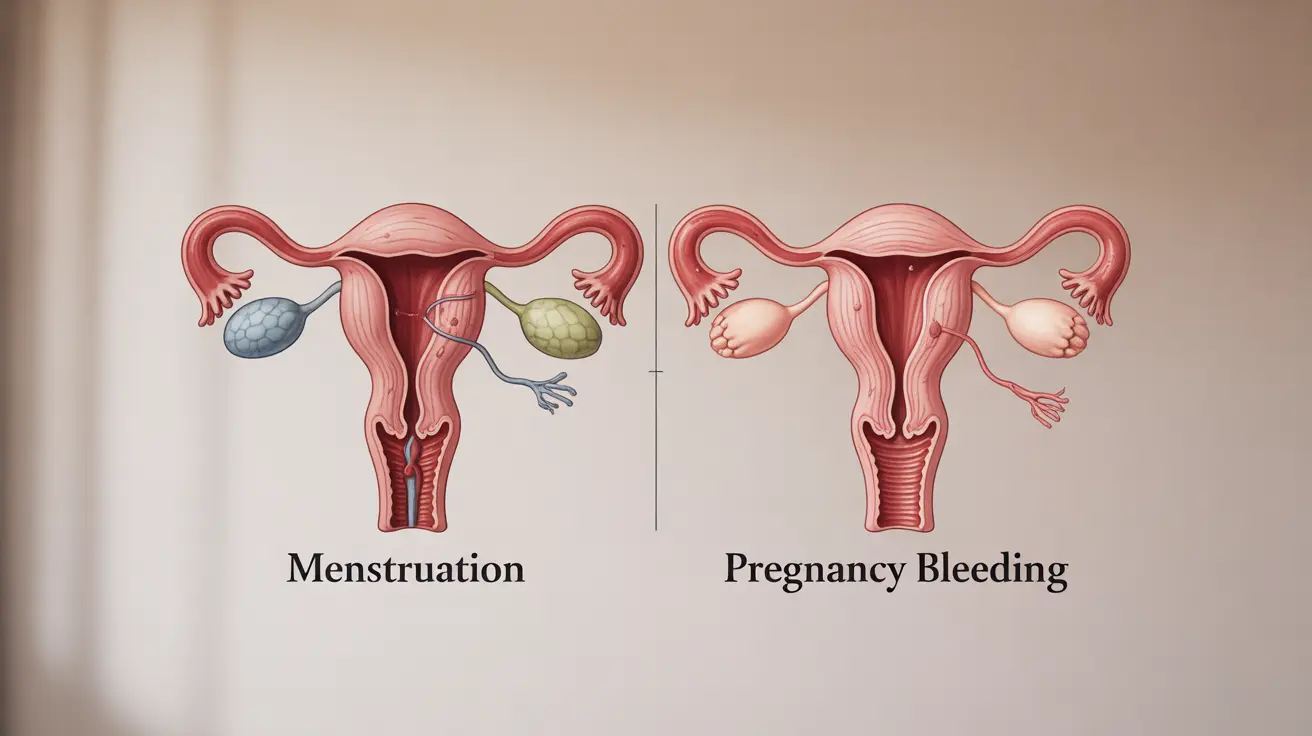Many women wonder if it's possible to be pregnant and still experience what appears to be a menstrual period. This common concern deserves careful attention, as understanding the difference between normal menstruation and pregnancy-related bleeding can be crucial for maternal health and proper prenatal care.
While you cannot have a true menstrual period during pregnancy, you can experience bleeding that might be mistaken for one. Let's explore the various types of bleeding that can occur during pregnancy and how to distinguish them from regular menstruation.
Understanding Pregnancy-Related Bleeding vs. Menstruation
During pregnancy, the uterine lining remains intact to support the developing fetus, which means a true menstrual period cannot occur. However, several types of bleeding can happen during pregnancy that might be confused with menstruation.
Implantation Bleeding
One of the earliest signs of pregnancy can be implantation bleeding, which occurs when the fertilized egg attaches to the uterine wall. This typically happens 6-12 days after conception and is characterized by:
- Light pink or brown spotting
- Brief duration (usually 1-2 days)
- Much lighter flow than a normal period
- No clots
First Trimester Bleeding
Bleeding during the first trimester is relatively common, affecting about 15-25% of pregnant women. This can be caused by various factors:
- Cervical changes
- Subchorionic hemorrhage
- Ectopic pregnancy
- Early pregnancy loss
Signs That Distinguish Pregnancy Bleeding from Periods
Understanding the key differences between pregnancy-related bleeding and menstrual periods can help you identify what you're experiencing:
Menstrual Period Characteristics
- Regular timing and pattern
- Bright to dark red blood
- Heavy flow with clots
- Typical menstrual cramps
- Lasts 3-7 days
Pregnancy Bleeding Characteristics
- Irregular or unexpected timing
- Often lighter in color
- Usually lighter flow
- May be accompanied by other pregnancy symptoms
- Variable duration
When to Seek Medical Care
Any bleeding during pregnancy warrants attention, but certain situations require immediate medical care:
- Heavy bleeding similar to a period
- Severe cramping or abdominal pain
- Passing tissue or large clots
- Dizziness or fainting
- Fever or chills
Getting Pregnant During Your Period
While less common, it is possible to conceive during menstruation, especially if you have irregular cycles or longer periods. Sperm can survive in the female reproductive tract for up to 5 days, which means intercourse during menstruation could lead to pregnancy if ovulation occurs shortly after your period ends.
Frequently Asked Questions
Is it possible to be pregnant and still have bleeding that looks like a period?
While you cannot have a true period during pregnancy, you can experience pregnancy-related bleeding that might resemble a period. This bleeding can have various causes and should always be discussed with your healthcare provider.
What are the common causes of bleeding during early pregnancy?
Common causes include implantation bleeding, cervical changes, subchorionic hemorrhage, infections, or in some cases, complications like ectopic pregnancy or threatened miscarriage. Any bleeding during pregnancy should be evaluated by a healthcare provider.
How can I tell the difference between implantation bleeding and a normal period?
Implantation bleeding is typically lighter, shorter in duration (1-2 days), and pink or brown in color. It doesn't contain clots and is much lighter than a normal period. It also occurs about 6-12 days after conception.
When should I seek medical care if I experience bleeding while pregnant?
Seek immediate medical attention if you experience heavy bleeding, severe cramping, passing tissue, dizziness, fever, or any concerning symptoms. It's always better to err on the side of caution during pregnancy.
Can you get pregnant if you have sex during your period?
Yes, it's possible to get pregnant from intercourse during your period, especially if you have irregular cycles. Sperm can survive for several days in the reproductive tract, potentially leading to fertilization if ovulation occurs soon after your period.




